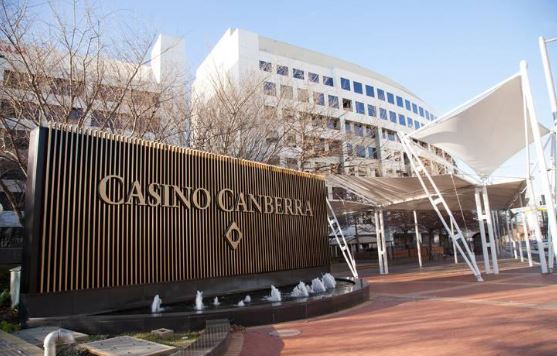 Current owners of Casino Canberra, Aquis Entertainment Ltd, are perfecting the details for a AUD$63 million transaction to sell the only casino in the Australian Capital Territory, to Iris Capital.
Current owners of Casino Canberra, Aquis Entertainment Ltd, are perfecting the details for a AUD$63 million transaction to sell the only casino in the Australian Capital Territory, to Iris Capital.
The investment firm based in Hong Kong has already announced plans to purchase the casino, and the deal is to be perfected in the following months.
Details of the Transaction
The new owner, Iris Capital, is a Hong Kong-based investment firm that is no stranger to the Australian market. The company has a diverse portfolio of assets ranging from technology to hospitality and real estate amongst others.
The Casino Canberra is part of a wider strategy to expand its footprint in the Australian gambling industry.
Furthermore, Aquis was pushed to sell Casino Canberra after failed negotiations with the ACT government over a huge renovation project that was proposed by the owners. The initial plans included an entire makeover for the casino with around AUD$330 million allocated for this project.
However, the renovation application also included plans to include 500 slot machines at the casino – currently banned under existing legislation. The ACT government had permitted 200 slot machines and 60 Electronic Gambling Machines under strict conditions, as a counteroffer.
However, Aquis rejected this offer and decided to sell.
The Australian Gambling Environment
The acquisition of Casino Canberra comes at a time when the Australian gaming market is undergoing significant changes. Over the past few years, the industry has seen a shift away from traditional land-based casinos to online gaming and sports betting.
While the Australian casino industry remains a lucrative one, with revenues in excess of $5 billion annually, operators are having to adapt to changing consumer preferences and increased competition.
Furthermore, the inability of the national government, together with the local institutions, to come up with a proper framework for online and offline gambling, makes the investors weary.
However, it seems that IRis Capital is bold and has lots of confidence in the future of the country’s gaming industry.
The Canberra casino is a small operation, with just 39 gaming tables and a handful of electronic gaming machines. However, it has a loyal base of customers and has been a fixture in the local community for over two decades.
Iris Capital’s investment will allow the casino to expand its operations and modernize its facilities, ensuring that it remains competitive in an increasingly crowded marketplace. That is, of course, assuming the ACT government provides permission.
Not only that Casino Canberra is the only such venue in the area, but it’s also a significant contributor to the local economy.
According to casino industry experts at truebluecasinos.org, the acquisition is a step forward for the gambling industry in the Australian Capital Territory. It employs over 200 staff members, and the annual revenue is estimated at AUD30 million.
As a result, Iris Capital’s investment will not only ensure the casino’s survival but will also benefit the local job market and the wider economy.
No Acquisition without Challenges
Like any other similar transaction in Australia, Casino Canberra’s transfer of ownership is not without challenges.
The Australian gaming industry is tightly regulated, and operators must comply with strict laws and regulations governing everything from gambling advertising to the operation of electronic gaming machines.
Iris Capital will need to work closely with regulators to ensure that the casino is operating within the law and to address any concerns that may arise.
Especially considering Aquis’s intent to renovate and supplement the number of EGMs and slots, this could be a major challenge for the new owner. Especially considering that the acquisition comes at a time when the Australian government is tightening its control on the gaming industry.
With growing concern about problem gambling and the social costs associated with it in recent years, the government has introduced a range of measures. The mandatory pre-commitment and voluntary self-exclusion schemes are just two examples.
Operators such as Casino Canberra will need to be proactive in addressing these issues if they are to maintain their social license to operate.
However, despite these challenges, the acquisition of Casino Canberra is a positive development for the Australian gaming industry. It reflects the growing interest in the sector from international investors and highlights the potential for growth in the years ahead.
The industry is set to undergo significant changes in the coming years, with the emergence of new technologies such as virtual and augmented reality, as well as the increasing popularity of esports and sports betting.








